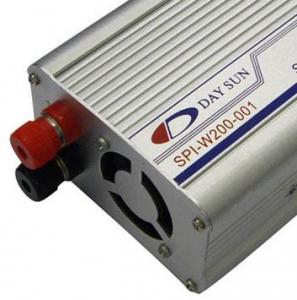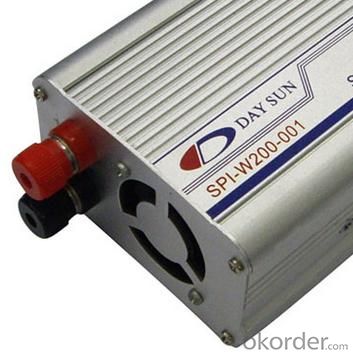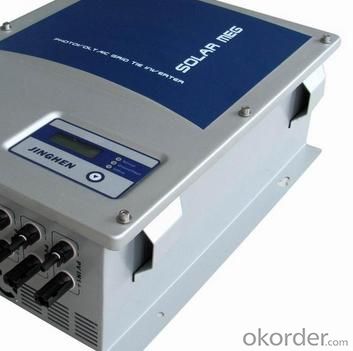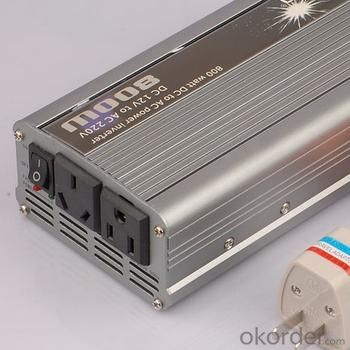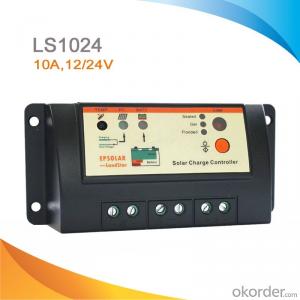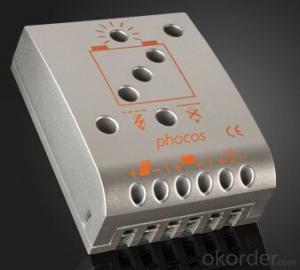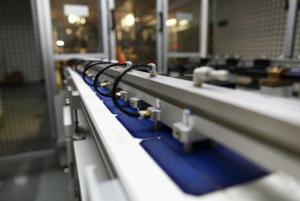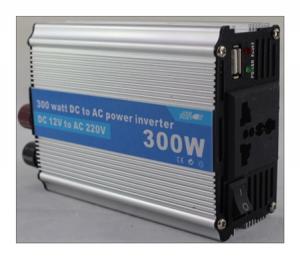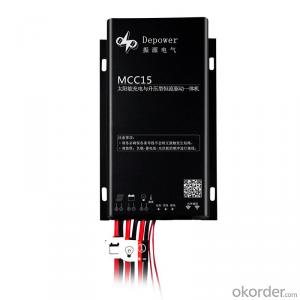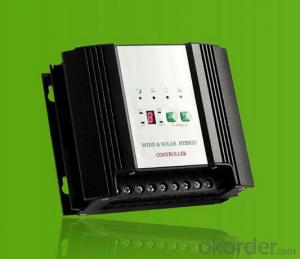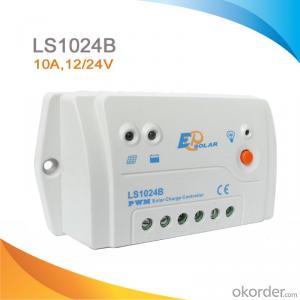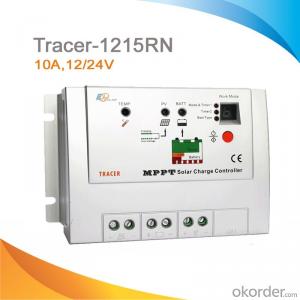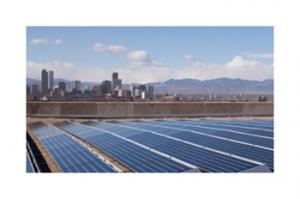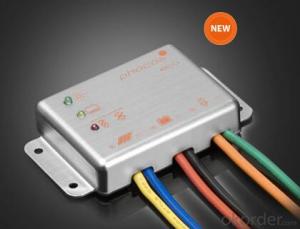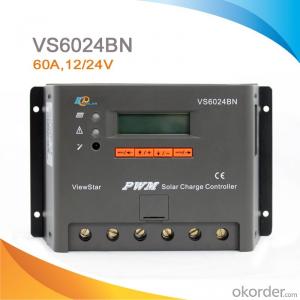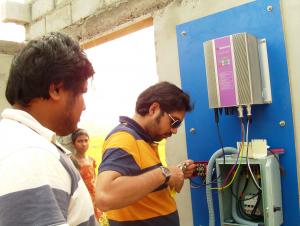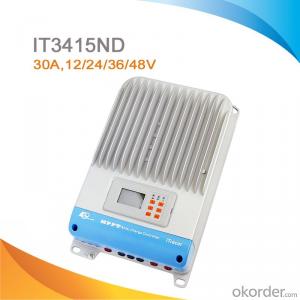Solar Controllers - High Quality 10A 12V Solar Charge Controller with Useful Discharge
- Loading Port:
- China main port
- Payment Terms:
- TT or LC
- Min Order Qty:
- 100 unit
- Supply Capability:
- 10000 unit/month
OKorder Service Pledge
OKorder Financial Service
You Might Also Like
1, Product desciption
Inverter circuits designed to produce a variable output voltage range are often used within motor speed controllers.
The DC power for the inverter section can be derived from a normal AC wall outlet or some other source. Control and feedback circuitry is used to adjust the final output of the inverter section which will ultimately determine the speed of the motor operating under its mechanical load.
Motor speed control needs are numerous and include things like: industrial motor driven equipment, electric vehicles, rail transport systems, and power tools. (See related: variable-frequency drive ) Switching states are developed for positive, negative and zero voltages as per the patterns given in the switching Table.
The generated gate pulses are given to each switch in accordance with the developed pattern and thus the output is obtained.
2, Features of the product
Inverters convert low frequency main AC power to higher frequency for use in induction heating.
To do this, AC power is first rectified to provide DC power. The inverter then changes the DC power to high frequency AC power. Due to the reduction in the number of DC Sources employed, the structure becomes more reliable and the output voltage has higher resolution due to an increase in the number of steps so that the reference sinusoidal voltage can be better achieved.
This configuration has recently become very popular in AC power supply and adjustable speed drive applications. This new inverter can avoid extra clamping diodes or voltage balancing capacitors. There are three kinds of level shifted modulation techniques, namely:
The first thing to figure out is the length of road in need of street lights.
This can be a small entrance road only a couple hundred of feet long to miles of streets through an area. Does the area currently have any type of lighting available.
What is the reason for needing street lights in this area
Is the electrical grid already nearby or would you need to call in the power company to bring in electrical lines.
If the electric needs to be brought to the area, how much is this going to cost? Depending on how far the grid electric is from the location of the needed lighting, this can be quite expensive.
How much lighting is needed on the street? Do the lights need to be dark sky compliant.
Do the street lights need to run from dusk to dawn or for only a specified number of hours at night.
Are the street lights able to dim in the middle of the night and still provide enough lighting.
These questions need to be answered before you can decide on how many lights you will need to complete the project.
3, Detailed Specification
ltem | Description |
Rating Voltage | 1000VDC |
Rating Current | 15A |
Protection Class | CLASSll |
Ambien e Range:t Temperatur | -40℃---85 |
Dust,water level | IP67 |
Sealing | Closed |
Cable Specification | 4mm2 |
Dimension | 104x95x19(mm) |
Certification | TUV/ |
Diode model | SB4040LDC |
Testing standard | BS EN50548;2011 |
Pollution levels | 2 |
Maximum working temperature | 110℃ |
Flame retardant grade | UL94 V-0 |
Bus width | MAX.6.0 mm |
Convergence with the connection | Clamping |
Connector | CABLE |
4, Product Image
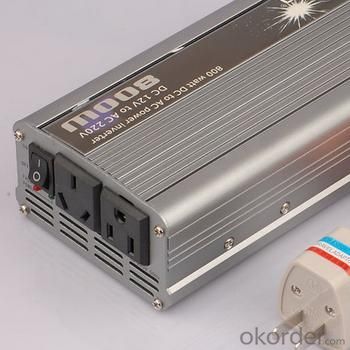
- Q: Can a solar controller be used with a solar-powered parking lot or garage?
- Yes, a solar controller can be used with a solar-powered parking lot or garage. A solar controller helps manage and regulate the charging of batteries or the direct power flow from solar panels to the electrical system. It ensures efficient and safe operation of the solar power system, making it suitable for use in a solar-powered parking lot or garage.
- Q: Are there any disadvantages of using a solar controller?
- Yes, there are a few potential disadvantages of using a solar controller. Firstly, solar controllers can add an extra cost to the overall solar power system setup. Additionally, some solar controllers may have limited compatibility with certain solar panel systems or may not be able to handle high voltage outputs. Another disadvantage is that solar controllers can introduce a small amount of energy loss, reducing the overall efficiency of the solar power system. Finally, certain types of solar controllers may require regular maintenance or replacement, adding to the overall maintenance cost of the system.
- Q: How does a solar controller handle variations in battery discharge level?
- A solar controller regulates the charging process of a battery by monitoring its voltage levels. When it detects a low discharge level, it adjusts the charging parameters accordingly to provide a higher charging current. This helps in replenishing the battery quickly and efficiently. Conversely, if the discharge level is high, the solar controller decreases the charging current to prevent overcharging and prolong the battery's lifespan.
- Q: Can a solar controller handle different battery types (e.g., lead-acid, lithium)?
- Yes, a solar controller can handle different battery types such as lead-acid and lithium. Most modern solar controllers are designed to be compatible with various battery chemistries and can be programmed or adjusted accordingly to ensure optimal charging and discharging characteristics for specific battery types.
- Q: What is the maximum charging current that a solar controller can provide to batteries?
- The maximum charging current that a solar controller can provide to batteries depends on the specific model and capacity of the controller. It can range from a few amps to several hundred amps, with larger controllers typically having higher charging capacities.
- Q: Can a solar controller be used with a solar battery charging system?
- Yes, a solar controller can be used with a solar battery charging system. A solar controller is an essential component in regulating the flow of electricity from the solar panels to the batteries. It helps prevent overcharging and damage to the batteries by controlling the voltage and current. Therefore, using a solar controller with a solar battery charging system is crucial for efficient and safe operation.
- Q: Can a solar controller be used with solar-powered indoor aquaponics systems?
- Yes, a solar controller can be used with solar-powered indoor aquaponics systems. A solar controller helps regulate and manage the power generated by solar panels, ensuring optimal charging and usage of batteries. In an indoor aquaponics system, where sunlight may be limited, a solar controller can help maximize the efficiency of solar power utilization, providing a sustainable and eco-friendly solution for powering the system.
- Q: How do I connect a solar controller to a solar-powered water heater?
- To connect a solar controller to a solar-powered water heater, start by identifying the appropriate terminals on both the controller and the water heater. Typically, the controller will have labeled terminals for connecting the solar panel, battery, and load. The solar-powered water heater should have terminals for connecting the solar collector and the storage tank. Once you have identified the terminals, connect the solar panel's positive wire to the controller's solar panel terminal, and the negative wire to the controller's negative/ground terminal. Next, connect the solar collector's positive wire to the water heater's solar collector terminal, and the negative wire to the water heater's negative/ground terminal. Ensure all connections are secure and tight, and then power on the solar controller. The controller will regulate the energy flow from the solar panel to the water heater, maximizing efficiency and temperature control. Make sure to consult the user manuals for both the solar controller and water heater for any specific instructions or nuances related to your particular setup.
- Q: Can a solar controller be used with flooded batteries?
- Yes, a solar controller can be used with flooded batteries. In fact, it is recommended to use a solar controller with flooded batteries to ensure proper charging and prevent overcharging, which can damage the batteries. The solar controller regulates the charging current and voltage from the solar panels, protecting the flooded batteries and extending their lifespan.
- Q: Can a solar controller be used in a community solar system?
- Yes, a solar controller can be used in a community solar system. A solar controller is an essential component that regulates the charging and discharging of batteries in a solar panel system. In a community solar system, multiple solar panels are connected to a central grid, and a solar controller ensures that the energy generated by each panel is efficiently distributed and stored. It helps optimize the system's performance and ensures that the energy generated by the community solar system is effectively utilized.
Send your message to us
Solar Controllers - High Quality 10A 12V Solar Charge Controller with Useful Discharge
- Loading Port:
- China main port
- Payment Terms:
- TT or LC
- Min Order Qty:
- 100 unit
- Supply Capability:
- 10000 unit/month
OKorder Service Pledge
OKorder Financial Service
Similar products
Hot products
Hot Searches
Related keywords
